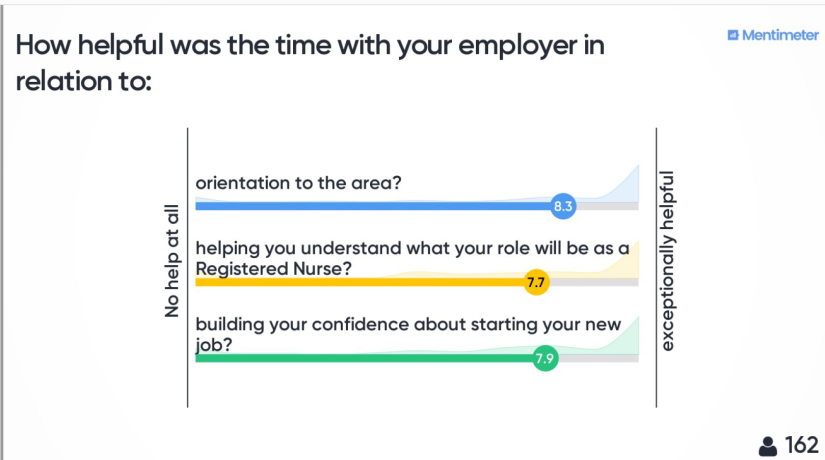 Dr David Barrett writes: As part of the STaR project work with our students and partners in practice, we have been exploring different ideas to facilitate the transition period, when students exit the university and move into the world of work. One of the ideas that came out from our interviews (with students and clinical leaders) was the need for an opportunity for students to meet their future colleagues and see their place of work prior to starting their newly qualified nurse (NQN) role.
Dr David Barrett writes: As part of the STaR project work with our students and partners in practice, we have been exploring different ideas to facilitate the transition period, when students exit the university and move into the world of work. One of the ideas that came out from our interviews (with students and clinical leaders) was the need for an opportunity for students to meet their future colleagues and see their place of work prior to starting their newly qualified nurse (NQN) role.
“…it will give them the opportunity to meet people…you know the code for the door…silly little things, it will make them less anxious on the day they start”
“…I would always advise people to start somewhere where they have already had a placement, just for simple things like you know where the coffee room is…you know how things work …they know your work ethic…they know what you are like”
The message from interviews was very clear: students would benefit from spending time with their first employer ahead of qualification. It was suggested that this would promote familiarisation and orientation, allow pre-induction processes to commence, potential training needs to be identified and for the ‘transition shock’ of new employment to be reduced.
From a University perspective though, final placements with the first employer raises some issues. It is important that the decision of a sign-off mentor/practice assessor on a student’s readiness for registration is entirely objective. If the final placement (and final assessment) takes place on the area where a student will be taking up employment, this may compromise objectivity. Equally, students must be judged as competent to work in any area as a Registered Nurse, not simply the specialty or area in which they will commence employment. For these reasons, the policy of the University of Hull is not to give student final placements in the setting in which they will be taking up employment (though other Universities do allow this).
Nonetheless, the STaR findings demonstrated a desire to allow students some exposure to their place of first employment (PFE) during their final placement. As a compromise, an initiative was designed that would allow them to spend up to two weeks (75hrs) of their final 12-week placement working within their PFE. Their performance during this time would not be formally assessed, though supervisors could provide testimony that was fed back to sign-off mentors. The PFE initiative was developed and agreed with our main local employers, and first implemented in the summer of 2019.
Initial feedback from the project has been positive. Two-thirds of students took the opportunity to spend time with their PFE (reasons for not doing so included previously having had a placement there or the area being too geographically distant to be practical). We asked those who had spent time with their PFE to rate (on a scale of 0-10) how useful the time had been. Orientation to the area (mean score 8.3) was deemed the area in which the initiative was most useful, followed by building confidence (7.9) and understanding the RN role (7.7).
We also asked the students what they found most useful. Many students highlighted that the time enabled them to meet their future colleagues (and vice versa) – “Getting to know the staff”; “Getting my face recognised before starting”. For other, there were practical benefits – “…getting uniforms and shifts and booking holidays” – and the ability to become orientated – “Understanding the ward’s routine”. One unexpected ‘benefit’ was raised by five respondents whose time on their PFE made them realise that they had made a mistake in accepting the post: “I learnt I did not want to work there”.
There were some teething troubles with the initiative. Awareness amongst practice areas – particularly those further afield – could be better, and the processes for arranging and recording time with the PFE could be enhanced. We are continuing to review the student feedback, and that from our partners, to refine the process and governance around this but we are really pleased to see that the initiative has been broadly successful and seems to have helped some students prepare for the transition from student to employee.
